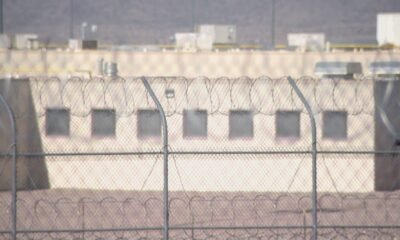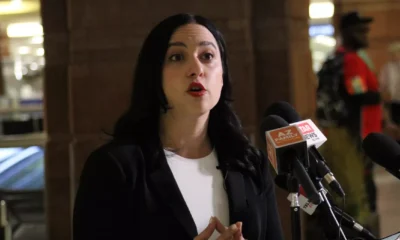arizona
Arizona AG Calls for Fresh Investigations into Uranium Mine Near Grand Canyon as 1986 Studies Fall Short in 2024

Arizona Attorney General Kris Mayes has called for a reevaluation of the environmental impact studies surrounding a uranium mine south of the Grand Canyon. Mayes argues that the current analysis, conducted in 1986, is no longer relevant or accurate.
The Pinyon Plain Mine, which began uranium extraction in December, is expected to operate for a minimum of five years. Mayes is particularly concerned about potential contamination of the groundwater supply vital to the Havasupai Tribe, asserting that the older studies do not consider current scientific findings.
The 1986 Environmental Impact Statement (EIS) claimed no risk to the Redwall-Muav aquifer, indicating that groundwater flowed at least 1,000 feet below the mine. Recent studies contradict this, suggesting a high likelihood for mining contaminants to move between aquifers.
“The groundwater system is far more complicated than previously thought. We cannot rely on decades-old studies,” stated Laura Crossey, a University of New Mexico researcher and lead author of the study.
Energy Fuels Resources, which operates the mine, maintains that the 1986 EIS has undergone multiple reviews and affirmations by federal and state authorities, including the Arizona Department of Environmental Quality. They assert compliance with current environmental regulations to safeguard public health.
Moreover, Mayes has raised concerns regarding uranium transport across Northern Arizona, particularly through tribal lands, without the promised notifications to local stakeholders. She expressed dissatisfaction with the lack of an emergency preparedness plan from Energy Fuels Resources.
In a formal statement, Mayes detailed that she had been informed of uranium ore transport routes that bypassed previously agreed notification processes, impacting the Havasupai Tribe and surrounding communities.
The Havasupai have long fought against the mine, raising alarm over issues of water contamination and its effects on their ancestral lands. Activists have also mobilized, collecting over 17,000 signatures urging Governor Katie Hobbs to close the mine.
“Uranium mining threatens clean water and air. It is not a sustainable solution for energy needs,” highlighted Carletta Tilousi, a member of the Havasupai’s anti-uranium committee.
Leona Morgan, co-founder of the organization Haul No!, echoed similar sentiments regarding the environmental and civil rights implications of the mining operations. The ongoing fight against uranium mining remains a prominent issue for tribal leaders and residents of Northern Arizona.


















